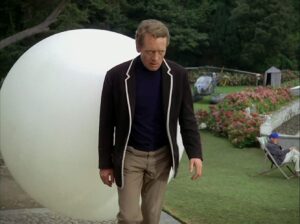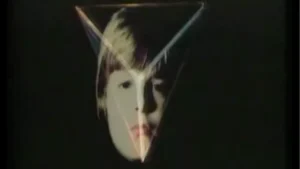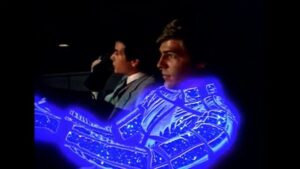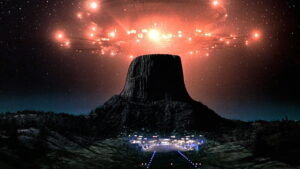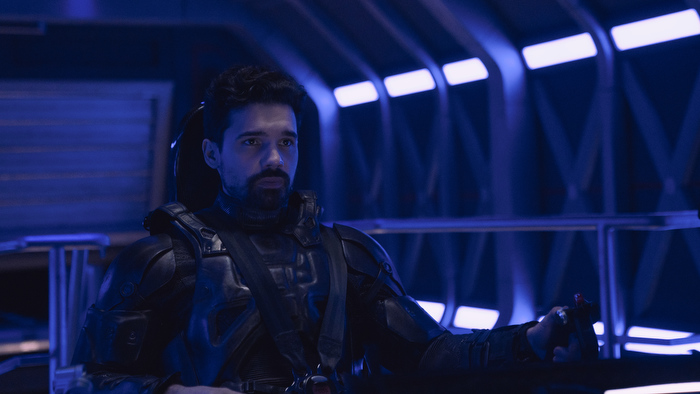
Steven Strait in THE EXPANSE. Photo Credit: Shane Mahood/Amazon Studios
In the vast cosmos of television sci-fi, “The Expanse” shines like a supernova, pulling viewers into its orbit with a gravitational force that’s hard to resist. Based on James S. A. Corey’s novels, this space opera has redefined what television science fiction can be, offering a thrilling blend of hard science, complex politics, and deeply human drama. Strap in, beltalowda, as we explore why “The Expanse” isn’t just great TV – it’s a revolution in the genre.
What sets “The Expanse” apart is its commitment to scientific accuracy. In a genre often dominated by handwavium and technobabble, this show treats physics like a main character. Zero-G scenes that make you feel weightless, space battles that respect the cold, silent vacuum of space, and a portrayal of space travel that makes you realize why no one’s popped over to Mars for a weekend getaway yet.
But don’t mistake scientific accuracy for dryness. The show uses its realism as a launchpad for imagination, crafting a future that feels tantalizingly possible. From the Epstein Drive to the protomolecule, “The Expanse” shows that you don’t need to break the laws of physics to break new ground in sci-fi storytelling.
At its core, “The Expanse” is a political thriller draped in the trappings of space opera. The conflicts between Earth, Mars, and the Belt are as nuanced and compelling as any earthbound political drama. It’s “Game of Thrones” in space, minus the dragons (though the protomolecule might disagree).
The show’s exploration of colonialism, resource scarcity, and class struggle resonates deeply with our current global challenges. It’s a mirror held up to our society, reflected through the lens of a possible future. When Miller talks about air and water rationing on Ceres, you can’t help but think about current environmental crises.
In lesser hands, the scientific and political elements could overshadow character development. Not so in “The Expanse.” The crew of the Rocinante – Holden, Naomi, Amos, and Alex – feel like family by the end of season one. Each character is richly drawn, with complex motivations and personal arcs that evolve meaningfully over the series.
“The Expanse” isn’t just great science fiction television; it’s great television, period. It proves that sci-fi can be thoughtful, political, and character-driven without sacrificing the sense of wonder and adventure that draws us to the stars.
Special mention goes to Shohreh Aghdashloo’s portrayal of Chrisjen Avasarala. Her gravelly-voiced, expletive-laden political maneuvering is a masterclass in how to create a character who’s simultaneously ruthless and deeply moral.
And let’s not forget Miller, the noir detective dropped into a sci-fi setting, or Bobbie Draper, the Martian marine who could probably bench-press the Roci. The ensemble cast is a treasure trove of compelling characters, each bringing depth to the expansive narrative.
Visually, “The Expanse” is a feast for the eyes. The attention to detail in everything from spaceship design to planetary landscapes is staggering. The depiction of space stations like Tycho and planets like Mars showcase a lived-in future that feels authentic and awe-inspiring.
The space battles are particular standouts. Forget Star Wars-style dogfights – “The Expanse” gives us tactical naval-style engagements that unfold with nail-biting tension. The show proves that adherence to realistic physics doesn’t dampen excitement; it enhances it.
Like the mysterious protomolecule that drives much of the plot, the storytelling in “The Expanse” is constantly evolving, reaching out to new narrative frontiers. What starts as a solar system-spanning conflict grows into something far larger and more profound. The show tackles themes of human evolution, first contact, and the nature of consciousness with a deftness that’s rare in any genre of television.
“The Expanse” isn’t just great science fiction television; it’s great television, period. It proves that sci-fi can be thoughtful, political, and character-driven without sacrificing the sense of wonder and adventure that draws us to the stars.
In an age where sci-fi often means superheroes or lightsabers, “The Expanse” dares to be different. It respects its audience’s intelligence, rewards close watching, and never shies away from asking big questions. It’s a show that will be remembered as a turning point in television sci-fi, a beacon guiding the way to a new golden age of thoughtful, provocative space-based storytelling.
So if you haven’t watched “The Expanse” yet, what are you waiting for? The juice is worth the squeeze, beltalowda. This is one trip through the ring gate you don’t want to miss.

